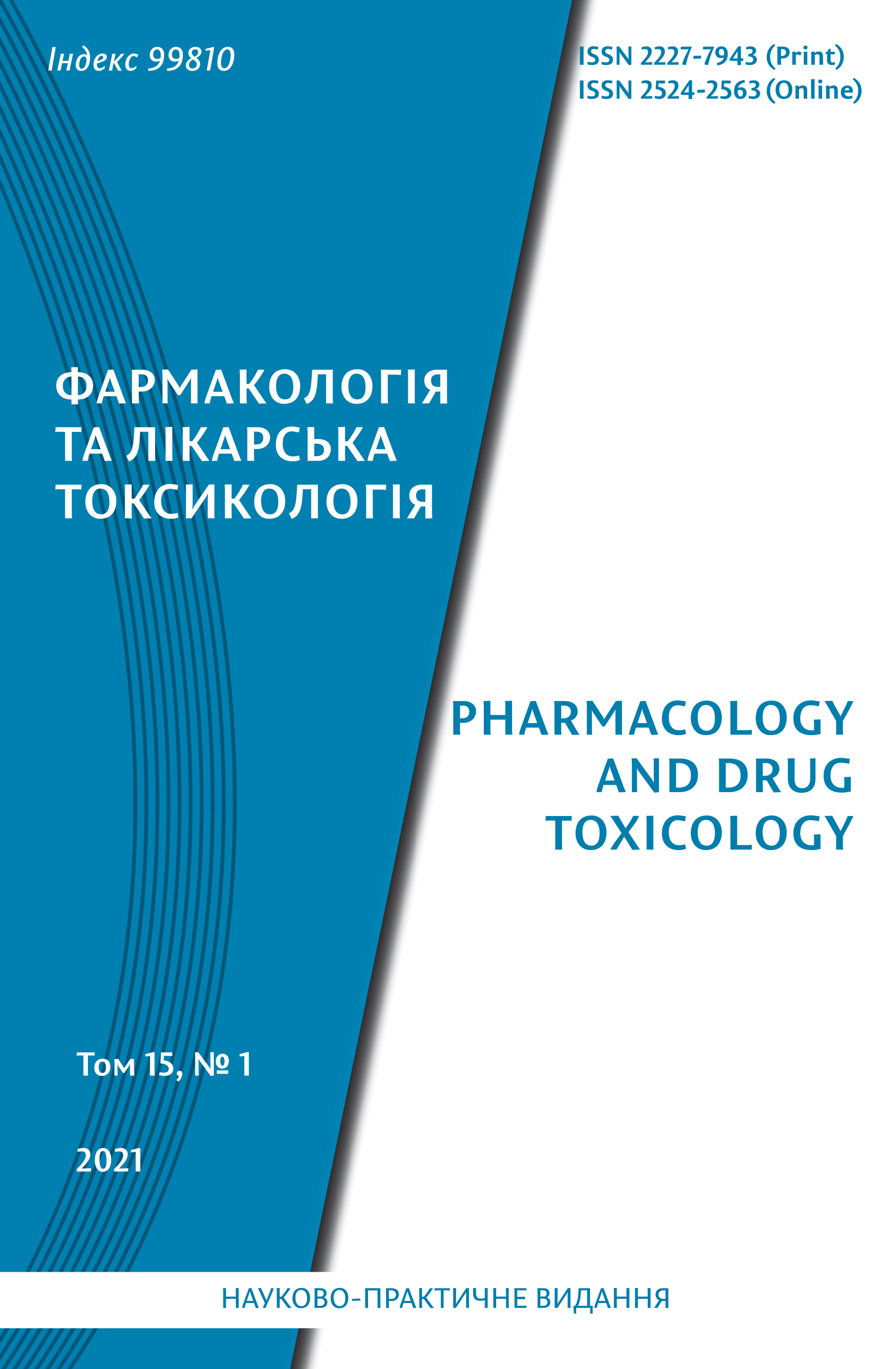Abstract
Current paper presents the results of in silico prediction and experimental study of anti-inflammatory and analgesic activities of the newly synthesized compound [3-allyl-4-(41-methoxyphenyl)-3H-thiazol-2-ylidene]-(32-trifluoromethyl-phenyl) amine hydrobromide (Cardiazole) as a potential cardiotropic drug
with polypharmacological action.
According to the results of in silico activity prediction, the probability of Cardiazole anti-inflammatory and analgesic effects was confirmed using the computer program Pharma expert/Prediction of Activity Spectra for Substances and as the possible biotargets were identified lipoxygenase by program Super
Pred, cyclooxygenase-2 and arachidonate-5-lipoxygenase by Swiss Target Prediction program.
An experimental study of the Cardiazole anti-inflammatory activity was performed on rats by means of carrageenan edema model. The Cardiazole analgesic activity was evaluated on white mice under a model of visceral pain induced by intraperitoneal injection of 0,75% acetic acid solution.
A rather significant anti-inflammatory effect of Cardiazole has been established, which is characterized by a decrease of rats limb edema in a model of carrageenan inflammation. The anti-exudative activity is 33,2 % and it is, in fact, identical to the activity of ibuprofen.
Studies of the Cardiazole analgesic effect on the model of visceral pain showed its fairly high analgesic activity – 47 %, as evidenced by a decrease in the number of cramps compared to the group of untreated animals.
Thus, the results in silico study indicate the likelihood of anti-inflammatory and analgesic activities of Cardiazole that was confirmed under in vivo experiments on the models of carrageenan edema and visceral pain, respectively.
